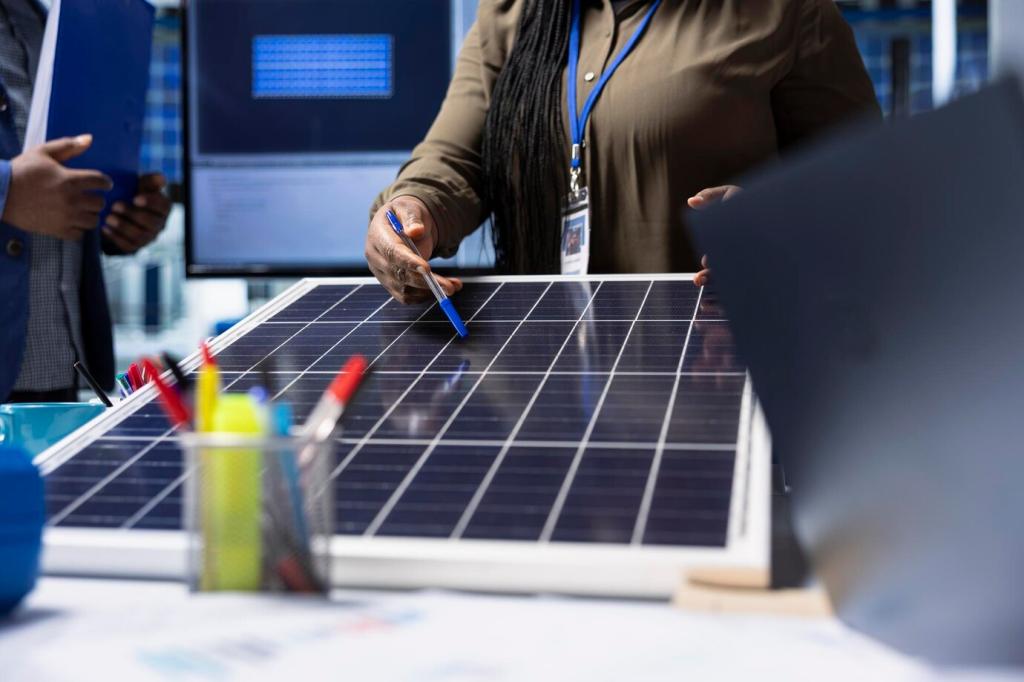Energy-Efficient Technologies for Small Businesses
Embracing energy-efficient technologies is a smart approach for small businesses looking to reduce operational costs, minimize environmental impact, and enhance their corporate image. Today’s market offers an array of innovative solutions specifically designed to help smaller enterprises manage energy consumption more effectively. By investing in such technologies, small businesses not only contribute to sustainability but also position themselves competitively in a world increasingly driven by eco-conscious consumers and regulatory requirements.
Cost Savings Through Efficiency
Reducing electricity bills is one of the primary motivators for small businesses to implement energy-efficient technologies. By investing in modern lighting solutions, HVAC systems, and equipment with higher energy star ratings, businesses can significantly lower their routine costs. The savings realized on monthly utility bills can often offset the initial investment in new technologies within a few years, providing a tangible return and freeing up capital for other business needs.
Environmental Impact and Responsibility
Small businesses adopting energy-efficient technologies play a crucial role in reducing their collective environmental footprint. By using less electricity and optimizing resource consumption, they contribute to lower greenhouse gas emissions and support broader global efforts to combat climate change. This proactive stance on environmental sustainability can also be a deciding factor for eco-conscious consumers who are increasingly seeking out businesses that align with their values.
Previous slide
Next slide

Smart HVAC Systems

Programmable thermostats give business owners greater control over their heating and cooling schedules. By adjusting temperature settings based on occupancy and operating hours, businesses can ensure equipment runs only when necessary. This not only minimizes energy waste but also extends the lifespan of the HVAC system. Programmable thermostats are an affordable upgrade that pays immediate dividends in reduced utility expenses.
Energy Star is a well-recognized program that identifies equipment meeting strict energy performance standards. From printers and computers to refrigerators and dishwashers, choosing Energy Star certified devices ensures that appliances consume less power without compromising functionality. These devices often qualify for rebates or tax incentives, further incentivizing the move toward greater efficiency in the workplace.

Renewable Energy Options
Installing solar panels is an effective way for small businesses to harness renewable energy directly from the sun. Advances in solar technology have made it more affordable than ever, allowing companies to generate a portion, or even the majority, of their electricity on site. The benefits include protected energy costs over time, potential eligibility for government incentives, and a positive reputation as an environmentally responsible enterprise.
While solar is often the first renewable technology considered, small-scale wind turbines and hydroelectric generators may also be feasible solutions depending on a business’s location and natural resources. These systems can supplement or, in some cases, fully satisfy a business’s energy needs. They provide reliable, low-cost energy over the long term, especially in areas where wind and water resources are abundant and easily accessible.
Pairing renewable energy systems with energy storage solutions, such as advanced batteries, further enhances the value of the investment. Storage systems allow small businesses to retain excess energy produced during peak generation hours for use when conditions are less favorable or demand is higher. This maximizes the reliability and flexibility of renewable energy, ensuring consistent operations regardless of external factors.
Automation and Building Management
A Building Management System offers centralized control over heating, cooling, lighting, and other building functions. BMS solutions continually monitor energy consumption and enable automated decision-making that minimizes waste. For small businesses occupying larger spaces or multi-use buildings, a BMS is invaluable in optimizing resource allocation and maintaining comfortable, energy-efficient environments throughout.

Water Conservation Technologies
Low-Flow Plumbing Fixtures
Installing modern low-flow toilets, faucets, and showerheads helps reduce the amount of water consumed without sacrificing performance. These fixtures are designed to use less water per operation, cutting unnecessary waste and easing the demand on hot water heaters. The result is lower water and energy bills, along with an immediate reduction in a business’s ecological footprint.
Efficient Water Heating
Traditional water heaters are often a hidden drain on energy resources. Upgrading to tankless or high-efficiency water heaters ensures that businesses use only the energy necessary to meet their hot water needs. These systems heat water on demand rather than maintaining a constant supply, drastically reducing standby energy losses and providing faster, more reliable access to hot water.
Automated Irrigation Controls
For businesses with landscaping or outdoor maintenance needs, automated irrigation systems offer precise control over water usage. Advanced controllers and soil moisture sensors enable business owners to tailor watering schedules to actual requirements, minimizing overuse and preventing runoff. The net effect is healthier landscapes, lower water bills, and a commitment to environmental stewardship.
Financing and Incentives for Adoption
Government Grants and Rebates
Many local, state, and federal agencies provide grants and rebate programs designed to encourage small businesses to invest in energy-efficient solutions. These financial incentives can substantially reduce the upfront costs of new technologies and often reward ongoing energy savings. Researching and applying for relevant programs is a crucial step for any small business looking to begin their energy efficiency journey.
Tax Incentives and Deductions
Tax credits and accelerated depreciation are commonly available for businesses that purchase and install energy-efficient equipment. These tax incentives lower the overall expense of improvements and free up capital for further investments in efficiency or other areas of operation. Staying current with available tax benefits ensures that businesses maximize the return on their efficiency investments each fiscal year.
Energy Efficiency Financing Options
A growing number of financial institutions offer specialized loans and leasing arrangements specifically for energy efficiency projects. These products typically feature favorable terms and low interest rates, allowing small businesses to implement substantial upgrades without depleting cash reserves. By spreading costs over time in line with realized savings, energy efficiency financing makes it easier for businesses of all sizes to embrace sustainable technology.
